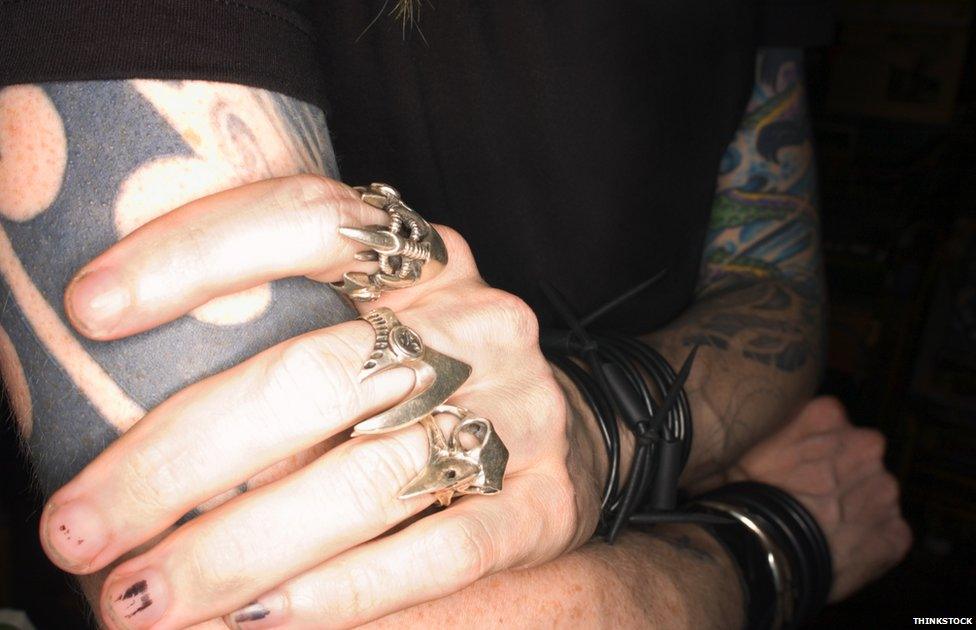'Being a goth helped me to fit in at school'
- Published

In the Oxford English Dictionary a goth is defined as "a member of a subculture favouring black clothing, white and black make-up and goth music".
The group is in the news because a study suggests young people who identify themselves as part of that community may be at increased risk of depression and self-harm.
It suggests people who identify with being a goth at 15 are three times more likely to self-harm aged 18 than others.
But does becoming a goth give you a greater likelihood of becoming depressed - or do people with depression gravitate towards the goth community?
All the way through school in Suffolk, Laura says she used to listen to anything that was in Kerrang! magazine, such as My Chemical Romance, The Cure, Nightwish, Slipknot, AFI, Evanescence and Lacuna Coil.

Now 23, she says she became a goth because it helped her to fit in.
"They seemed like a really nice group of people," she tells Newsbeat.
"There were always cliques at school and you had all your popular kids and they did certain things and I wasn't one of those people.
"I'd also hang around the music department at the school and they'd all be listening to that sort of thing.
"I just sort of fitted in with it. I was listening to song lyrics and the way the music was and it explained a bit more about how my brain was at that time and what I was thinking."

So is there anything about being a goth that means you're more likely to suffer from depression?
Laura's been diagnosed with depression but rather than causing it, she thinks being a goth helped relieve her symptoms.
"A lot of people who suffer with depression - goth and not goth - they have got a vulnerability anyway.
"But there are many goths out there who don't have depression and there are many people who have depression who have never identified as a goth.
"I know they're not goths, but when Thirty Seconds To Mars were first coming out I was 11 and the people around them were so supportive.
"When you go to gigs there's no real negativity. People just seem to get on.
"The song lyrics are generally quite uplifting. A lot of the singers and band members have had troubles - they're singing about how they got through it and it gives people hope.
"It helps tell a story."
For more on depression go to the BBC Advice pages.
Follow @BBCNewsbeat, external on Twitter, BBCNewsbeat, external on Instagram, Radio1Newsbeat, external on YouTube and you can now follow BBC_Newsbeat on Snapchat